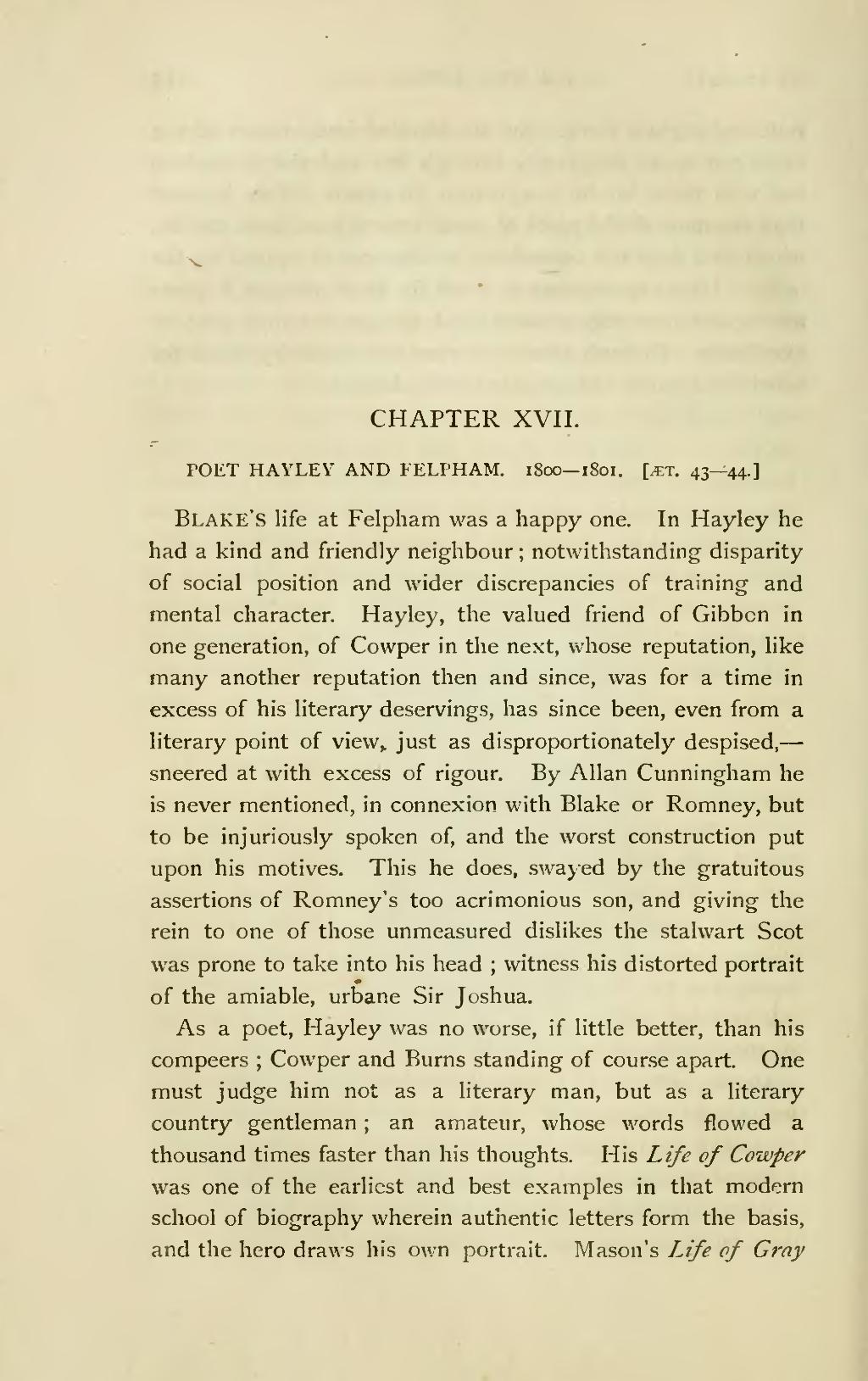CHAPTER XVII.
POET HAYLEY AND FELPHAM. 1800— 1801. [ÆT. 43—44.]
Blake's life at Felpham was a happy one. In Hayley he had a kind and friendly neighbour; notwithstanding disparity of social position and wider discrepancies of training and mental character. Hayley, the valued friend of Gibbon in one generation, of Cowper in the next, whose reputation, like many another reputation then and since, was for a time in excess of his literary deservings, has since been, even from a literary point of view, just as disproportionately despised,—sneered at with excess of rigour. By Allan Cunningham he is never mentioned, in connexion with Blake or Romney, but to be injuriously spoken of, and the worst construction put upon his motives. This he does, swayed by the gratuitous assertions of Romney's too acrimonious son, and giving the rein to one of those unmeasured dislikes the stalwart Scot was prone to take into his head; witness his distorted portrait of the amiable, urbane Sir Joshua.
As a poet, Hayley was no worse, if little better, than his compeers; Cowper and Burns standing of course apart. One must judge him not as a literary man, but as a literary country gentleman; an amateur, whose words flowed a thousand times faster than his thoughts. His Life of Cowper was one of the earliest and best examples in that modern school of biography wherein authentic letters form the basis, and the hero draws his own portrait. Mason's Life of Gray
